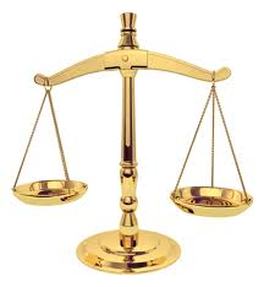
Just as a man can take from another a thing in two ways:
- By theft - by taking something from another secretly and without the owners knowledge
- By robbery - By taking from another openly and against hi expressed will.
- By reviling - openly injuring a man as we just saw
- By Back-biting - secretly and behind the back of the other, that is, without his knowledge.
- The way in which the words are uttered, secretly and not openly.
- The end intended, the reviler intends to injure a man honour, the backbiter injures a man’s good name.
A man has three goods:
1. Those of his soul
These you can not take away directly, but can only be an occasion for him to lose these good.
2. Those of his Body
These goods excel those of external thing, thus murder is more grievous than theft
3. Those of external things
Among these comes those goods of wealth, being closer to the spiritual things, and a man greatest wealth is that of his good name.
We must remember that back-biting is wrong and even listening to it and not doing anything to contradict the backbiter, you in a way consent to what is being said, and can become a participator in his sin. This is especially true for those whose duty it is to correct the backbiter. What happens if what he says is the truth? Then we should tell him that what he is doing is sinful in back-biting his brother, or at least show by our outward appearances that we are not pleased with what is said.
Tale-bearing 1
Tale-bearing is similar to back-biting for it speaks evil of our neighbour. But the ends are different hence they are called by different names. The backbiter wants to blacken his neighbour’s good name, so he brings out those things which are likely to defame him or at least reduce his good reputation.
Whereas the tale-bearer wants to cut off a friendship, so he talks ill about him so that his hearers mind may be stirred up against the one under attack. The tale-bearer wishes to sever the friendship on both sides, so he can be called double tongued, or two faced, for he speaks ill of one and not to the other.
This kind of damage against justice is very grave, the book of Ecclesiasticus writes, “ An evil mark of disgrace is upon the double-tongued; but to the tale-bearer hatred, enmity and reproach”. Sins against our neighbour are more grievous, according as they inflict a greater injury on him, the greater the good, the greater the injury. A man can not live without friends, for Scripture tells us that, “ Nothing can be compared to a faithful friend.” To be loved by a faithful friend is greater than honour, tale-bearing takes away directly ones friends.
We must therefore avoid causing division among friends by saying nasty things about someone’s friends just in order to make them think badly of their friend and good of us.
Mockery 2
The mock a person is to bring shame upon him and to disturb a person’s conscience by confusing him with evil deeds that mocked person has supposed to have done. When one makes fun of anothers evil or defect it can be a slight evil or a great evil that is made fun of. If it be the defect be one of little children or someone handicapped and we make a game of it so that we no longer are worried about his misfortune but despise him altogether then this is a serious sin. Likewise if we mock God and the things or persons dedicated to God, then comes our parents, as proverbs tells us, The eye that mocketh at his father, and that despiseth the labour of his mother in bearing him, let the ravens of the brooks pick it out, and the young eagles eat it. Prov. 30 17.
Even to mock good people is grievous, for honour is the reward of virtue. The kind of mockery does great harm, for it turns men away from good deeds. For if a man does good and is mocked every time, then is so much harder for him to do good the next time. Then the one seeing that good actions are so mocked with think twice about doing good, for he naturally fears to be mocked by others.
1 Summa Theologica IIa IIae Q. 74
2 Q. 75




